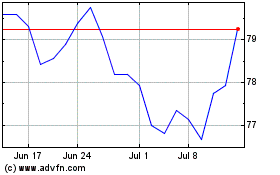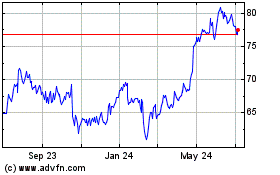FORM 6-K
SECURITIES
AND EXCHANGE COMMISSION
Washington,
D.C. 20549
Report
of Foreign Issuer
Pursuant
to Rule 13a-16 or 15d-16 of
the
Securities Exchange Act of 1934
For the
month of April 2021
Commission
File Number: 001-11960
AstraZeneca PLC
1
Francis Crick Avenue
Cambridge
Biomedical Campus
Cambridge
CB2 0AA
United
Kingdom
Indicate
by check mark whether the registrant files or will file annual
reports under cover of Form 20-F or Form 40-F.
Form
20-F X Form 40-F __
Indicate
by check mark if the registrant is submitting the Form 6-K in paper
as permitted by Regulation S-T Rule 101(b)(1):
Indicate
by check mark if the registrant is submitting the Form 6-K in paper
as permitted by Regulation S-T Rule 101(b)(7): ______
Indicate
by check mark whether the registrant by furnishing the information
contained in this Form is also thereby furnishing the information
to the Commission pursuant to Rule 12g3-2(b) under the Securities
Exchange Act of 1934.
Yes __
No X
If
“Yes” is marked, indicate below the file number
assigned to the Registrant in connection with Rule 12g3-2(b):
82-_____________
AstraZeneca PLC
INDEX
TO EXHIBITS
1.
Update
on Farxiga COVID-19 DARE-19 Phase III trial
12 April 2021 07:00
BST
Update on the DARE-19 Phase III trial
for Farxiga in COVID-19
AstraZeneca and Saint Luke's Mid America Heart
Institute today announced high-level results of the primary
analysis from the DARE-19 Phase III trial assessing the
potential of Farxiga (dapagliflozin) to treat patients
hospitalised with COVID-19 who are at risk of developing serious
complications.
The trial did not achieve statistical significance for
the primary endpoint of prevention measuring organ dysfunction
and all-cause mortality, and the primary endpoint of recovery
measuring a change in clinical status (from early recovery to
death), at 30 days.
DARE-19 was the first Phase III trial to evaluate the safety and
efficacy of a sodium-glucose co-transporter-2 (SGLT2)
inhibitor in patients hospitalised with COVID-19 who also have
risk factors for developing serious complications, including
hypertension (HTN), type-2 diabetes (T2D), atherosclerotic
cardiovascular disease (ASCVD), heart failure (HF) or chronic
kidney disease (CKD) Stages 3-4.1,2 Cardiac,
renal and metabolic comorbidities have been associated with poor
outcomes and death in patients hospitalised with
COVID-19.3,4
Mikhail N. Kosiborod, M.D., cardiologist at Saint Luke's Mid
America Heart Institute, Vice President of Research at Saint Luke's
Health System, and principal investigator of DARE-19, said:
"DARE-19 provided important data on the potential benefits and
risks of using SGLT2 inhibitors to treat hospitalised patients with
COVID-19. While the trial did not achieve statistical significance,
the findings are very interesting and valuable, and will inform
future clinical science. Also, of importance, we learned that
dapagliflozin's well-established safety profile was consistent in
DARE-19."
Mene Pangalos, Executive Vice President, BioPharmaceuticals
R&D, said: "Prior to the DARE-19 Phase III trial, there was
little data on the use of SGLT2 inhibitors in hospitalised patients
with COVID-19 and we have now helped to fill this knowledge gap. We
look forward to the efficacy and safety data being presented in the
coming weeks."
The safety and tolerability profile for Farxiga at 30 days in the trial was consistent with
the well-established safety profile of the
medicine.
The full DARE-19 trial results will be presented at the American
College of Cardiology Scientific Sessions in May 2021.
DARE-19
DARE-19 was an international, randomised, double-blind,
placebo-controlled, investigator-sponsored Phase III trial in 1,250
patients evaluating the efficacy and safety
of Farxiga in addition to background local standard of
care therapy in adults who are hospitalised with COVID-19 at the
time of trial enrolment. Patients enrolled in DARE-19
also had a medical history of HTN, ASCVD, heart failure, T2D or CKD
Stages 3-4 and received Farxiga or placebo for 30 days.1,2
Farxiga
Farxiga (dapagliflozin) is
a first-in-class, oral, once-daily SGLT2 inhibitor. The research
for Farxiga is advancing from cardiorenal effects to
prevention and organ protection as science continues to identify
the underlying links between the heart, kidneys and pancreas.
Damage to one of these organs can cause the other organs to fail -
contributing to leading causes of death worldwide, including T2D,
HF and CKD.
For nearly a decade Farxiga has been an effective monotherapy and part
of combination therapy as an adjunct to diet and exercise to
improve glycaemic control in adults with T2D. Following results
from the landmark DECLARE-TIMI 58 Phase III cardiovascular (CV)
outcomes trial,5 it
is approved in adults with T2D to reduce the risk of
hospitalisation for heart failure or CV death when added to
standard of care. Farxiga is also the first SGLT2
inhibitor approved for the
treatment of HFrEF in adults with and without
T2D.
In August 2020, results from the
DAPA-CKD Phase III trial demonstrated that Farxiga achieved unprecedented reduction in the
composite risk of kidney failure and CV or renal death in patients
with CKD with and without T2D versus placebo.6 It
is now the first SGLT2 inhibitor shown to significantly improve
overall survival in a renal outcomes trial for this patient
population and provide organ protection. Farxiga is not yet approved for the treatment of
CKD.
DapaCare is a robust programme of clinical trials to evaluate the
potential CV, renal and organ protection benefits
of Farxiga. It includes more than 35 completed and ongoing
Phase IIb/III trials in more than 35,000 patients, as well as more
than 2.5 million patient-years' experience. It is currently being
assessed in patients with HFpEF in the DELIVER Phase III
trial. Farxiga is also being tested in patients without T2D
following an acute myocardial infarction (MI) or heart attack in
the DAPA-MI Phase III trial - a first of its kind,
indication-seeking registry-based randomised controlled
trial.
AstraZeneca in CVRM
Cardiovascular, Renal and Metabolism (CVRM) together forms one of
AstraZeneca's three therapy areas and is a key growth driver for
the Company. By following the science to understand more clearly
the underlying links between the heart, kidneys and pancreas,
AstraZeneca is investing in a portfolio of medicines for organ
protection and improve outcomes by slowing disease progression,
reducing risks and tackling co-morbidities. The Company's ambition
is to modify or halt the natural course of CVRM diseases and
potentially regenerate organs and restore function, by continuing
to deliver transformative science that improves treatment practices
and cardiovascular health for millions of patients
worldwide.
AstraZeneca
AstraZeneca (LSE/STO/Nasdaq: AZN) is a global, science-led
biopharmaceutical company that focuses on the discovery,
development and commercialisation of prescription medicines,
primarily for the treatment of diseases in three therapy areas -
Oncology, Cardiovascular, Renal & Metabolism, and Respiratory
& Immunology. Based in Cambridge, UK, AstraZeneca operates in
over 100 countries and its innovative medicines are used by
millions of patients worldwide. Please
visit astrazeneca.com and
follow the Company on Twitter @AstraZeneca.
Contacts
For details on how to contact the Investor Relations Team, please
click here.
For Media contacts, click here.
References
1.
Saint
Luke's Health System. Dapagliflozin in Respiratory Failure in
Patients with COVID-19 (DARE-19). ClinicalTrials.gov
website. https://clinicaltrials.gov/ct2/show/NCT04350593.
2.
Kosiborod M et al. Effects of dapagliflozin on
prevention of major clinical events and recovery in patients with
respiratory failure because of COVID-19: Design and rationale for
the DARE-19 study. Diabetes Obes
Metab. 2021;
23(4):886-896.
3.
Wu Z, McGoogan JM. Characteristics of and
important lessons from the coronavirus disease 2019 (COVID-19)
outbreak in China: summary of a report of 72 314 cases from
the Chinese Center for Disease Control and
Prevention. JAMA. 2020;323:1239-1242.
4.
Madjid M, Safavi-Naeini P, Solomon SD, et
al. Potential effects of coronaviruses on the
cardiovascular system: a review. JAMA Cardiol.
2020;5:831-840.
5.
Wiviott SD, Raz I, Bonaca MP, et
al, for the DECLARE-TIMI 58 Investigators. Dapagliflozin and
cardiovascular outcomes in type 2 diabetes [article and
supplementary appendix]. N Engl J
Med.
2019:380:347-357.
6.
Kumbhani
DJ. Dapagliflozin and Prevention of Adverse Outcomes in Chronic
Kidney Disease-DAPA-CKD. Abstract presented at: Annual Meeting of
the American College of Cardiology; 13 November 2020.
Adrian Kemp
Company Secretary
AstraZeneca PLC
SIGNATURES
Pursuant
to the requirements of the Securities Exchange Act of 1934, the
Registrant has duly caused this report to be signed on its behalf
by the undersigned, thereunto duly authorized.
Date:
12 April 2021
|
|
By: /s/
Adrian Kemp
|
|
|
Name:
Adrian Kemp
|
|
|
Title:
Company Secretary
|
AstraZeneca (NASDAQ:AZN)
Historical Stock Chart
From Mar 2024 to Apr 2024

AstraZeneca (NASDAQ:AZN)
Historical Stock Chart
From Apr 2023 to Apr 2024
